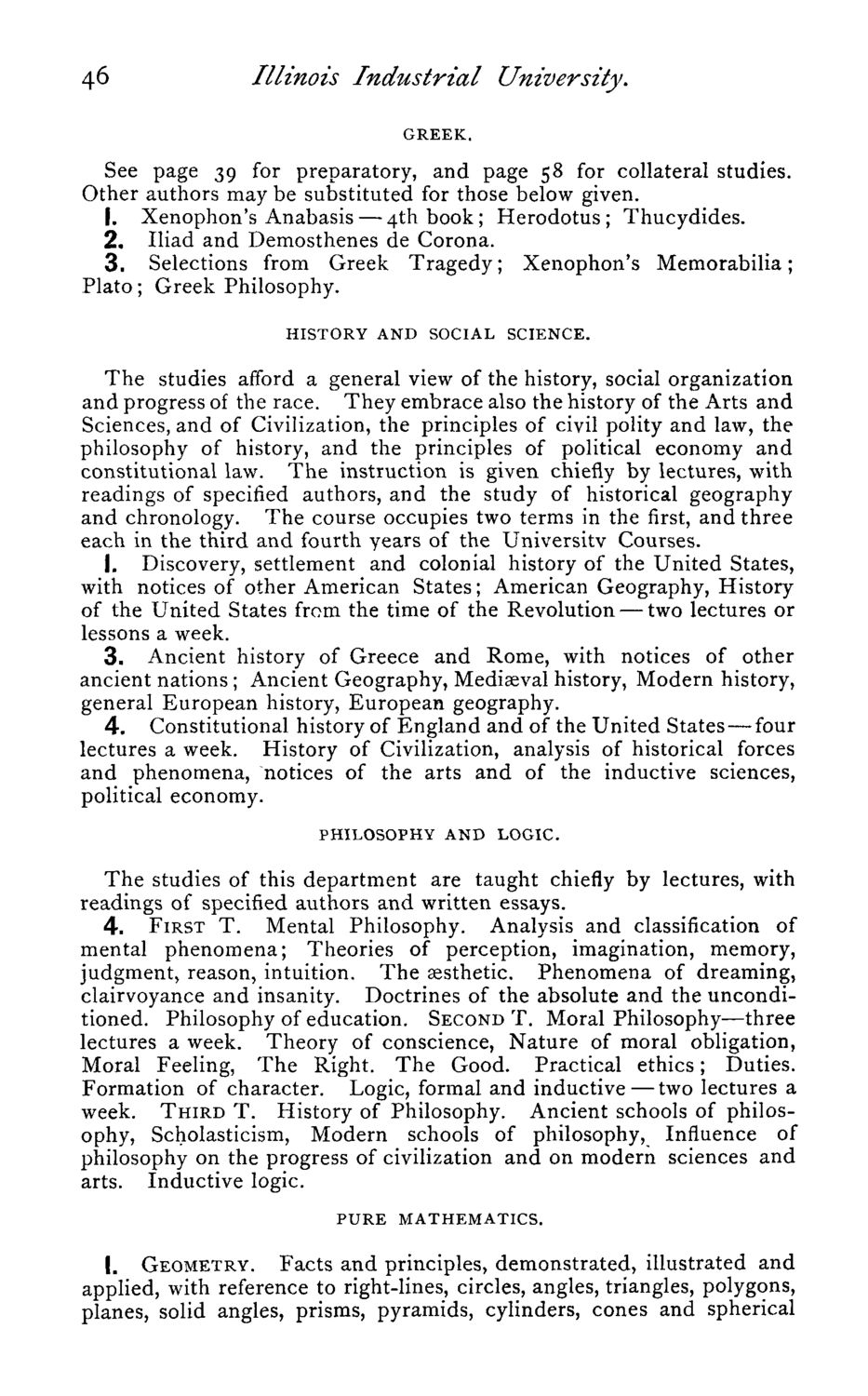| |
| |
Caption: Course Catalog - 1873-1874
This is a reduced-resolution page image for fast online browsing.

EXTRACTED TEXT FROM PAGE:
46 Illinois Industrial GREEK. University. See page 39 for preparatory, and page 58 for collateral studies. Other authors may be substituted for those below given. 1. Xenophon's Anabasis — 4th book; Herodotus; Thucydides. 2. Iliad and Demosthenes de Corona. 3. Selections from Greek Tragedy; Xenophon's Memorabilia; Plato; Greek Philosophy. HISTORY AND SOCIAL SCIENCE. The studies afford a general view of the history, social organization and progress of the race. They embrace also the history of the Arts and Sciences, and of Civilization, the principles of civil polity and law, the philosophy of history, and the principles of political economy and constitutional law. The instruction is given chiefly by lectures, with readings of specified authors, and the study of historical geography and chronology. The course occupies two terms in the first, and three each in the third and fourth years of the Universitv Courses. I. Discovery, settlement and colonial history of the United States, with notices of other American States; American Geography, History of the United States from the time of the Revolution — two lectures or lessons a week. 3. Ancient history of Greece and Rome, with notices of other ancient nations ; Ancient Geography, Mediaeval history, Modern history, general European history, European geography. 4. Constitutional history of England and of the United States — four lectures a week. History of Civilization, analysis of historical forces and phenomena, notices of the arts and of the inductive sciences, political economy. PHILOSOPHY AND LOGIC. The studies of this department are taught chiefly by lectures, with readings of specified authors and written essays. 4. FIRST T. Mental Philosophy. Analysis and classification of mental phenomena; Theories of perception, imagination, memory, judgment, reason, intuition. The aesthetic. Phenomena of dreaming, clairvoyance and insanity. Doctrines of the absolute and the unconditioned. Philosophy of education. SECOND T. Moral Philosophy—three lectures a week. Theory of conscience, Nature of moral obligation, Moral Feeling, The Right. The Good. Practical ethics; Duties. Formation of character. Logic, formal and inductive—two lectures a week. THIRD T. History of Philosophy. Ancient schools of philosophy, Scholasticism, Modern schools of philosophy, Influence of philosophy on the progress of civilization and on modern sciences and arts. Inductive logic. PURE MATHEMATICS. I. GEOMETRY. Facts and principles, demonstrated, illustrated and applied, with reference to right-lines, circles, angles, triangles, polygons, planes, solid angles, prisms, pyramids, cylinders, cones and spherical
| |